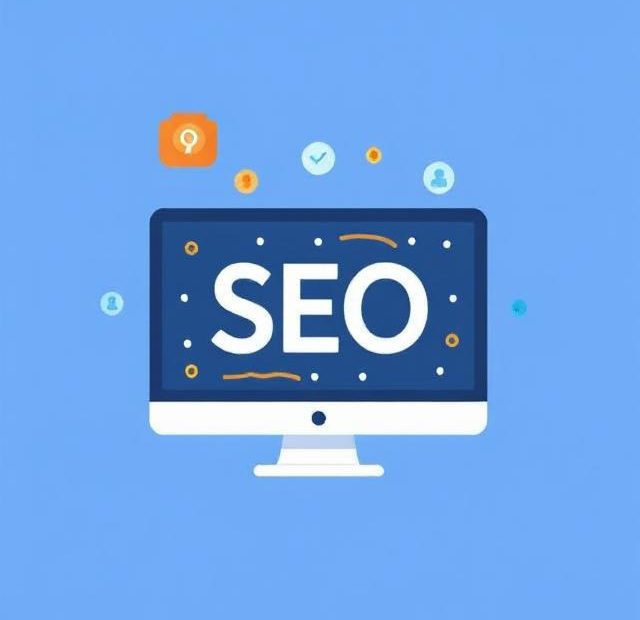You’ve probably heard someone say “you need SEO” like it’s a secret key to the internet. And yeah, I used to nod like I understood—but truth be told? Not really. Not until I actually dove into it myself. So here’s my take on SEO, the 2025 way. No fluff, no weird tech jargon (well, not too much of it). Just real talk.
Wait, What Even Is SEO?
Alright, so. SEO stands for “Search Engine Optimization.” Fancy name, sure. But at its core, it’s just making your stuff (website, blog, whatever) show up when people search on Google. Or Bing. Or DuckDuckGo, if you’re that kind of person.
Basically? You’re trying to convince a robot—Googlebot, to be exact—that your content’s the best answer to someone’s question. That’s it. You tweak stuff, add some keywords here and there, and boom—Google likes you more. Hopefully.
Why We Still Bother with SEO in 2025
I used to wonder if SEO was dying. You hear that a lot, don’t you? “SEO is dead.” Nah, it ain’t. Not even close. If anything, it’s just gotten smarter (and maybe pickier?). Search engines now, especially Google, they don’t just look for keywords anymore. They try to guess what you meant to ask.
Let’s face it—most of us don’t go past page one. Heck, I rarely scroll past the top five results. So yeah, if your site’s hiding down on page 3, you’re basically invisible.
How This All Works (In a Real-World Kind of Way)
Search engines don’t just magically know what’s on the internet. They have bots—like little scouts—that go from page to page, checking stuff out. It’s called “crawling.” Then they store all that info—“indexing”—and try to figure out what’s relevant to different searches.
They’ve got a secret formula (they call it an “algorithm”) that decides what goes on top. It’s like a popularity contest mixed with math and vibes.
The Three Flavors of SEO (All Kinda Different)
1. On-Page SEO (This Is the Stuff You Control)
This one’s all about your content. Are you using the right words? Are your titles click-worthy? Are you giving readers something useful?
I always make sure:
-
I’m using keywords without stuffing them everywhere (Google hates that now).
-
I have proper headings (like H1s, H2s… whatever’s relevant).
-
I link to my other pages, so Google understands how it’s all connected.
-
The content actually helps people. No filler. No fluff.
2. Off-Page SEO (Basically, Your Street Cred)
This one’s trickier. It’s about how the rest of the internet views your site. If other websites link to you (backlinks), that’s like a vote of confidence.
Getting backlinks from shady sites? That’ll hurt you. But if a solid blog or news site links to you? Google notices.
There’s also stuff like social media buzz and online mentions. It all adds up.
3. Technical SEO (Sounds Boring but Kinda Important)
This part is under the hood. And honestly, it used to confuse me at first. Things like:
-
Making sure your site loads quick
-
Making it look good on phones (mobile-friendly is a big deal now)
-
HTTPS encryption (if your site’s still using HTTP… fix that, seriously)
-
XML sitemaps, robots.txt files, structured data… all that nerdy stuff
Stuff That’s New in 2025 (Yep, SEO’s Still Evolving)
Google’s algorithm is wild these days. You can’t trick it like people used to back in 2010.
Some of the things I noticed lately:
-
AI-written content is everywhere, but if it sounds robotic, forget it—Google’s smart enough to know.
-
Voice search is huge. People are searching by asking questions out loud, so writing naturally helps.
-
Featured snippets (those little boxes at the top) are gold. If your content answers a question fast? You might land there.
-
Google’s still big on Core Web Vitals. If your page loads like a snail, don’t expect a top spot.
Want to Try SEO Yourself? Here’s How I Started
Honestly, the first time I tried doing SEO, I had no clue what I was doing. But it gets easier. Here’s what helped me:
-
Keyword research – I use tools like Ubersuggest and Google’s Keyword Planner to figure out what people are actually searching.
-
Writing content that solves problems – That’s all I aim for. What does someone typing this query really want?
-
Making sure my site doesn’t suck – Fast, mobile-friendly, easy to navigate.
-
Asking for backlinks – I emailed people I mentioned in my articles and sometimes they linked back. It actually works.
-
Tracking everything – Google Analytics, Search Console… I peek at them weekly.
Mistakes I Made (So You Don’t Have To)
Nobody told me this stuff early on, so here’s a heads-up:
-
I used to cram keywords everywhere. Made my writing sound like a robot was drunk.
-
My site took forever to load. Turns out, big image files were killing my speed.
-
I ignored mobile users. Half my visitors bounced. Lesson learned.
-
I thought I could buy backlinks cheap. Big nope. Google slapped me hard.
-
I never updated old posts. Now I refresh them every few months—it actually helps a lot.
Wrapping It Up: Is SEO Still Worth Learning?
If you’ve made it this far, thank you. Really. And yes—SEO is totally still worth it. Even in 2025. Especially now.
It’s not some get-rich-quick trick. It’s a long game. You write good stuff. You help people. You play nice with Google’s rules. And slowly, you climb the ranks.
Not overnight. Not easy. But real.
That’s SEO for me. No wizardry. Just consistency, curiosity, and a lotta Google searches. Also, you can learn more about Website Development here.

Great article, totally what I needed.